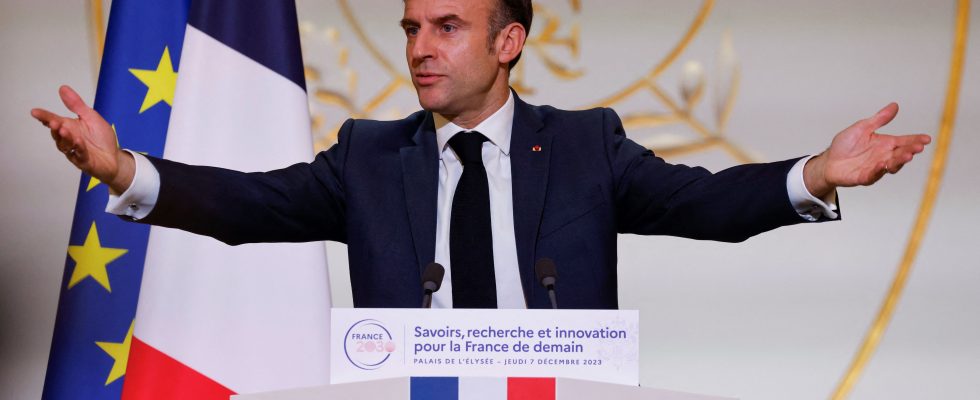No more “bureaucracy” at the CNRS? Pierre Rochette would like to believe it. This geologist, a silver medalist from the institution, filmed himself 8 days ago returning his decoration to his superiors by post. A moving gesture in an environment where recognition is rare and self-sacrifice is immense. Having since become the standard-bearer of scientific discontent, the researcher says he is “enthusiastic” about the overhaul of the main French scientific institutions promised by Emmanuel Macron by mid-term. But the “revolution” announced this Thursday, December 7 to free French research from its deadly procedures must still be up to the task.
L’Express: How do you perceive the great upheaval promised by Emmanuel Macron?
Pierre Rochette: It appears to be quite exciting, as is often the case when Emmanuel Macron speaks. It was important to recognize the malaise of French research, to show that he had heard the suffering of researchers and to say that our system is going badly. This is what he did, although for a long time the CNRS hierarchy told us: “Move around, there is nothing to see”. The question now is what will actually happen in the next 18 months, because nothing has been detailed. Too often, these big promises are not followed through. We have been hearing about simplification shocks for ten years and we have only received complexification shocks.
What do you think should be done as a priority to streamline the functioning of the CNRS?
The president announced more autonomy within the various scientific institutions, but also locally, for universities. I hope that in practice, this can clarify and simplify the system of supervision of researchers because, too often, we waste our time looking for who is responsible for what between the multiple supervisions, when we do not also have to be accountable to Europe, which also finances our projects. Operations that should take a week are spread over several months because of these multiple return trips. We must reduce the number of managerial steps and avoid double or triple supervision.
What other “administrative obstacles” do you encounter?
An example: we have had new expense report software since the summer. It was supposed to save us time, but it gives us three times more work. I did a one-week mission in Brittany a month ago, we got together with 5 members of the CNRS to try to cover my expenses, twice in a row, without being able to resolve the situation. If we have to submit our own invoices, why not? You still need to have an operational tool available. This is not the case. It is full of bugs, attachments get lost and sometimes you have to start the request from scratch, for no reason.
This might seem anecdotal if, behind the scenes, these situations did not multiply. And when, by some miracle, the software works, a new obstacle must be overcome, this time regulatory. Each expense is controlled twice at the CNRS: once internally in the units; another time within the regional CNRS delegation, which was understaffed. Two months before departure, the smallest detail of the mission must be agreed, we are prohibited from booking and paying for our accommodation ourselves, whereas as a geologist I have to work on an itinerary and I do not always know where I will sleep in advance, depending on the terrain conditions.
Is there a problem of trust with researchers in France?
Clearly. Abroad, my colleagues are responsible for their allocations and controls are carried out ex post. Here, the accounting officers think they are the farmer generals from before the revolution, and do not seem to know that they are in the service of research. The funds that we obtain to finance our work go back to the CNRS, which controls everything and takes 15 to 20% of the amount in management fees, and hinders its use rather than facilitating it. A colleague obtained funding from the European Research Council (ERC) of several million euros, which is no small thing in the industry. She ended up simply abandoning her position and giving up on her project, because her relations with the CNRS bureaucracy were such an ordeal.
